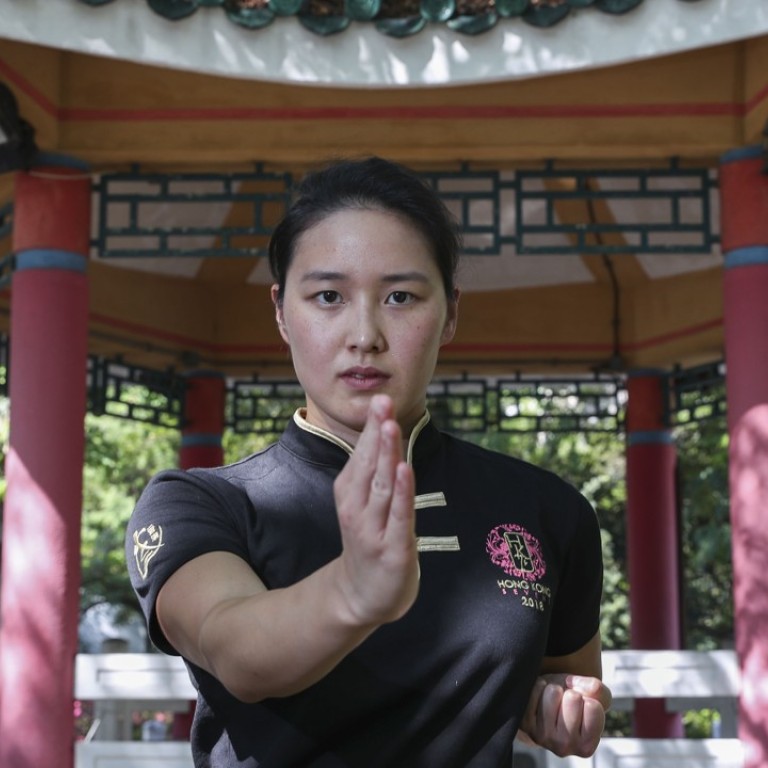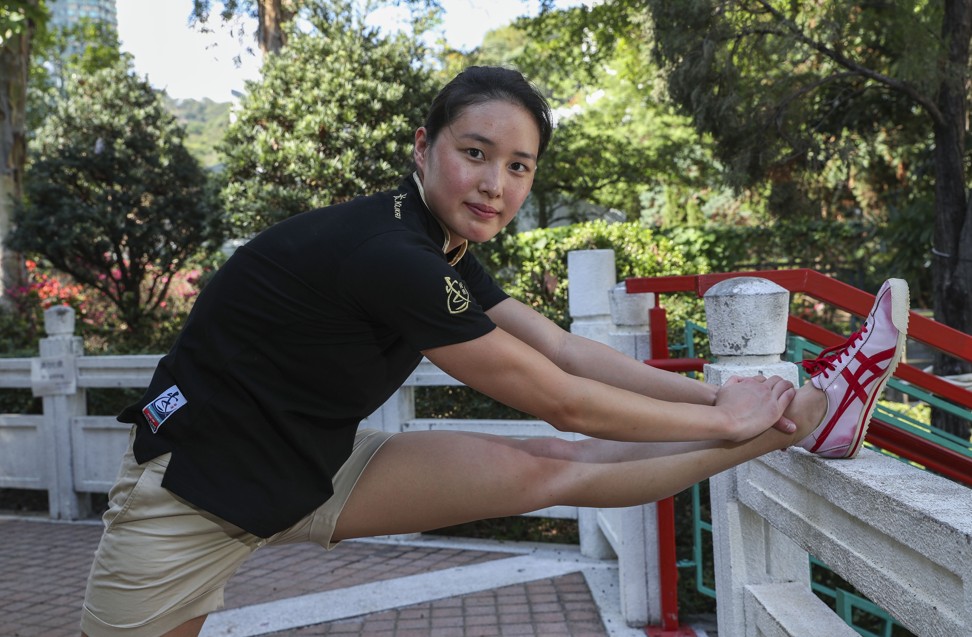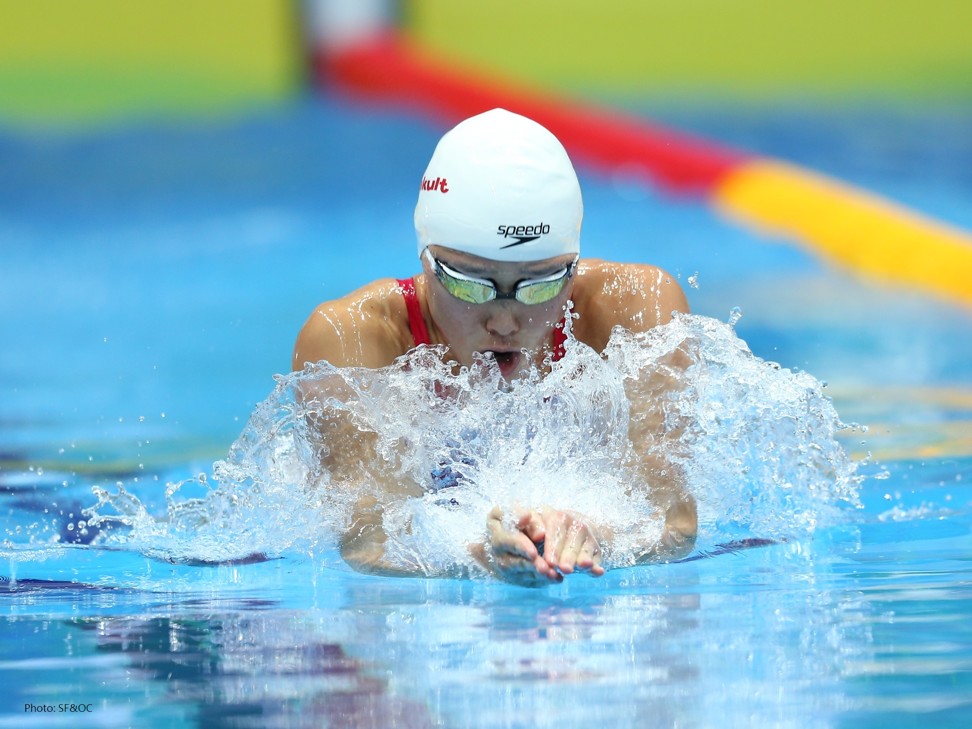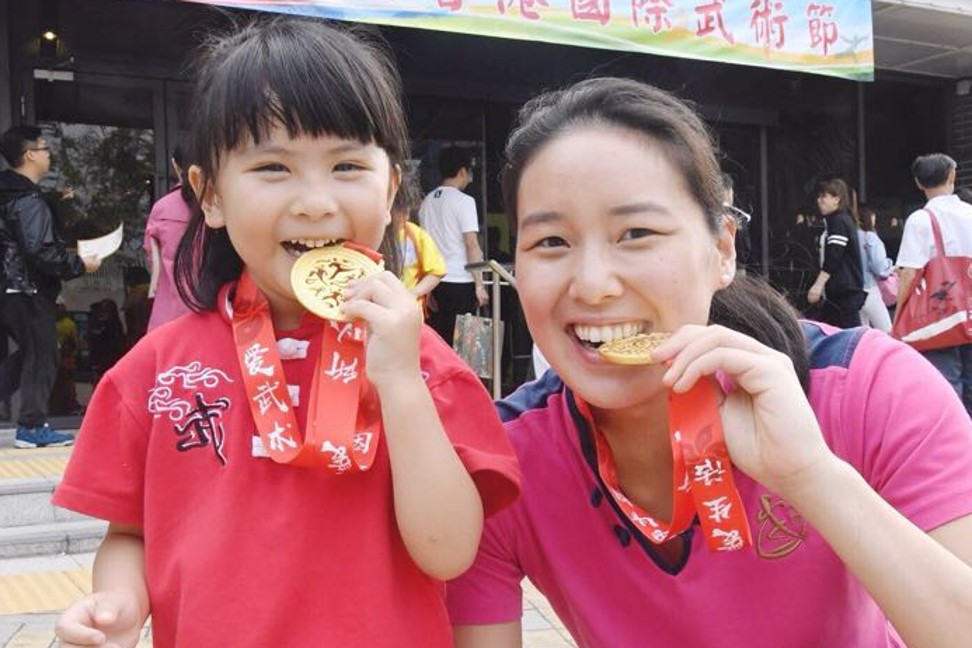
From watching Bruce Lee movies to winning wing chun gold: wushu brings Yvette Kong serenity in the swimming pool
The Hong Kong record holder credits southern China martial art with helping to save her swimming career and Olympic dream
What is the relationship between Chinese martial arts and swimming? Olympian Yvette Kong Man-yi may be best-placed to demonstrate.
The 25-year-old, who represented Hong Kong at the Rio Games two years ago after becoming one of the few local swimmers that made the “A” qualifying standard, recently won a gold medal in wing chun at the Hong Kong International Wushu Championships.
“I liked wushu since a very young age, I was always play-fighting with my brothers and cousins and watching Bruce Lee movies,” said Kong, who is preparing for the Asian Games in Indonesia this summer.
“When I was young, my mother once ordered me to learn ballet because of cultural stereotype but I quit after two lessons. I was simply too active and always had wushu on my mind.”

Kong then took up swimming, which she has been involved with for over two decades, and she is the Hong Kong record holder in four events – 50-metre, 100-metre and 200-metre breaststroke, and the women’s 4x100-metre medley relay when they won bronze at the 2009 East Asian Games in Kowloon Park.
But she has also practised wushu from the age of 12 under Bruce Lee Chun-pong, who coached her to her recent victory in wing chun.
The southern China martial art was popularised in Hong Kong by the 2008 box-office smash Ip Man, in which wing chun grandmaster Donnie Yen played the titular role.
“Practising wushu has helped me in different stages of my life,” said Kong. “When I was young, it was like a form of expression for any active teenager and as I grew up and started serious training in swimming, it helped my back muscles.
“When I was more mature, it helped not only on the physical side but also the mental side, as wing chun focuses on close range movement and every step must be well-controlled and performed with great power.

‘It helps you become more patient and to stabilise your mind, so that you know exactly what you are doing in every movement.”
Kong said she reached a crossroads in her swimming career after failing to qualify for two successive Olympics, at Beijing in 2008 and London in 2012.
She then moved from the United States after finishing her studies at Berkeley in California to train with the Edinburgh University swimming team in Scotland.
“The years between 2009 and 2015 were probably the worst in my swimming career. I just couldn’t do well and I quit swimming for a short period,” she said.
“But then wushu came in and my mental character became stronger and the new environment in Edinburgh also worked well for me.
“Eventually I made it to the Rio Olympics and I would say my training in wushu did play a role.”

With her lifelong goal of competing at an Olympic Games achieved, Kong said she had the opportunity to realise some of her smaller ambitions, which included taking part in the Wushu Championships.
“Wushu is a big asset of Hong Kong with a long tradition. I appreciate it very much and always want to spread it,” said Kong. “But now of course my focus is back for the Asian Games which is just around the corner.”
Kong will be attempting only the 50-metre breaststroke in Jakarta and the women’s 4x100 metre medley relay if she gets selected for the team.
“I would be very happy to get the relay chance again and of course I also want a breakthrough in a shorter distance,” said Kong, whose bronze in Incheon four years ago was her first Asian Games medal.
“Powerhouses China and Japan are always strong in the relay and we must beat South Korea if we want to join the two heavyweights on the podium.”

